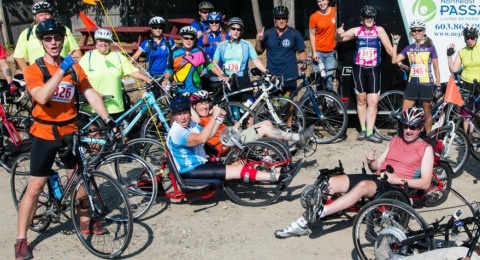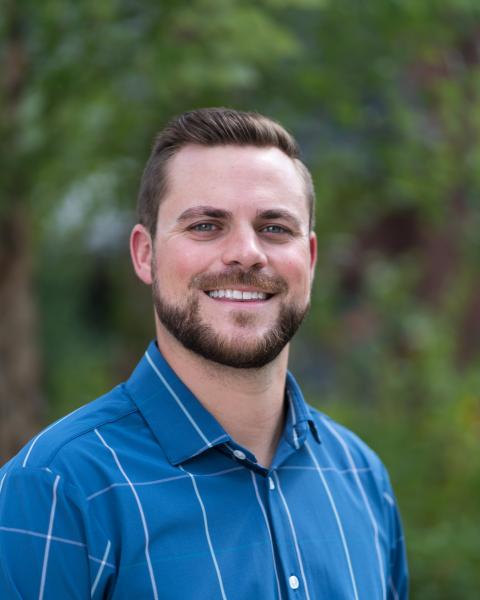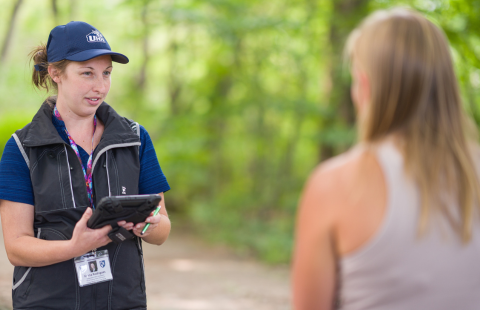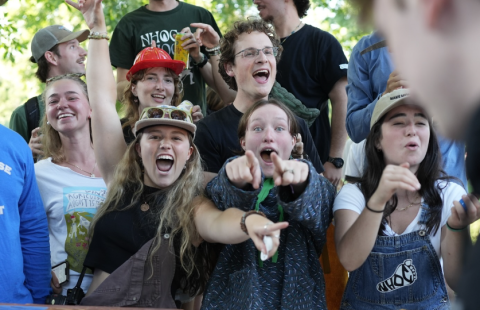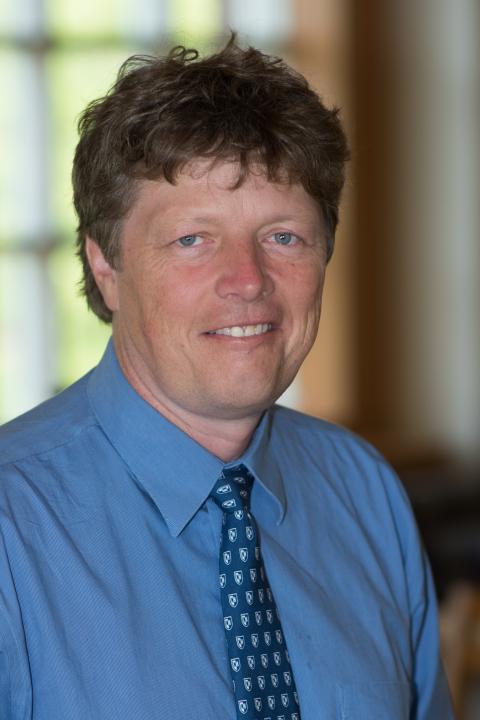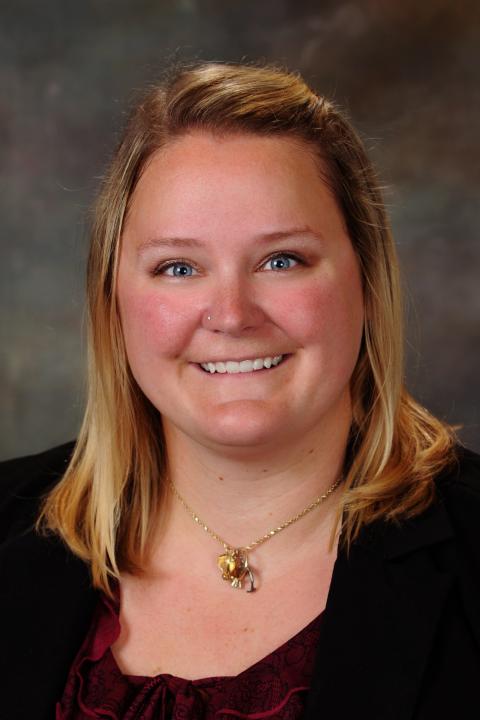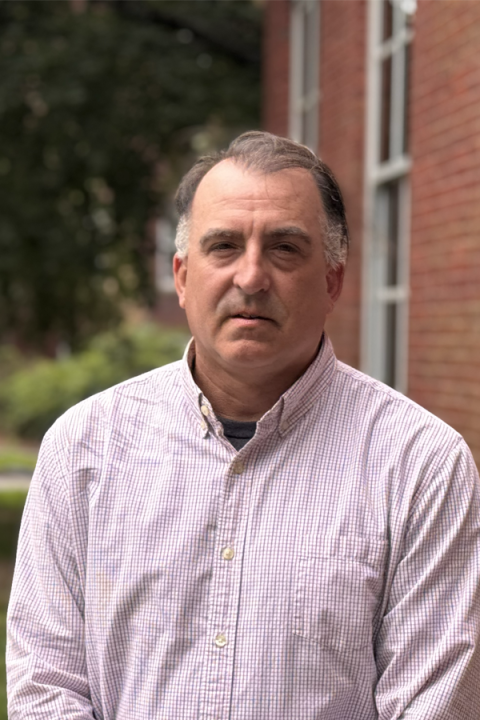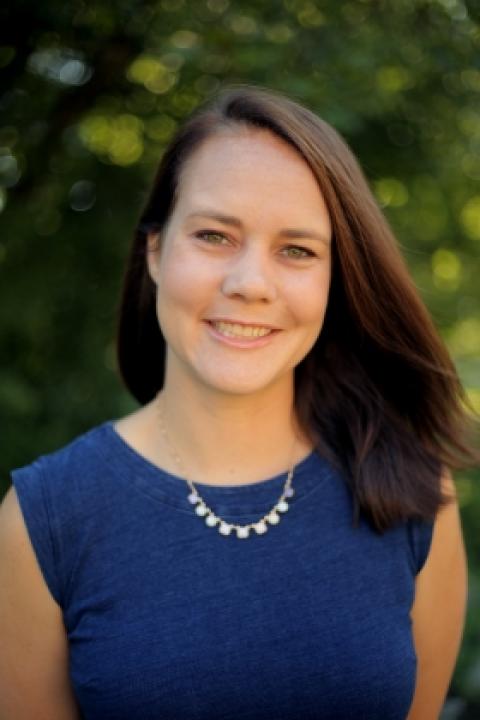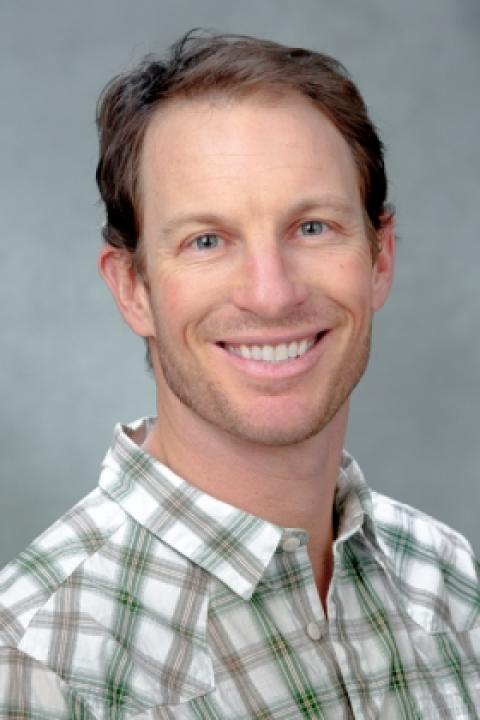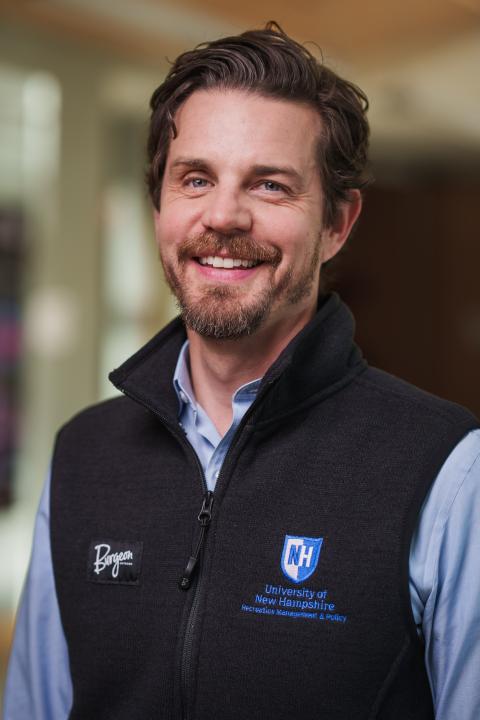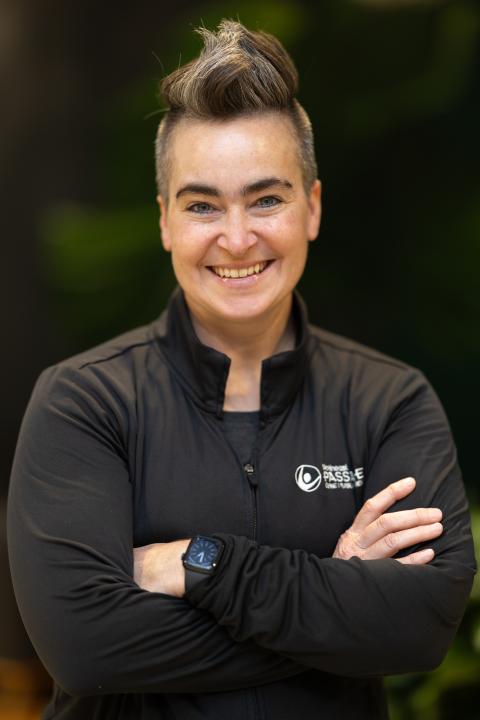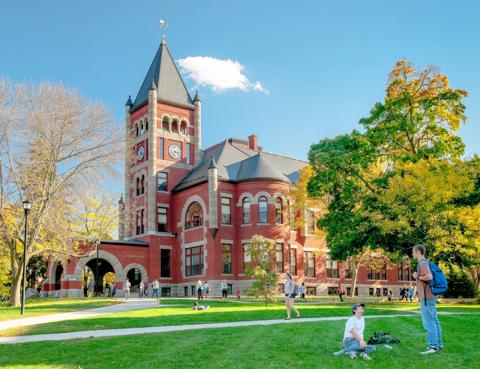Please note: Admissions to the RMP MS Graduate Program are currently paused. Prospective students interested in recreation administration are encouraged to consider graduate programs in the Carsey School of Public Policy.
WHY GET A MASTER’S DEGREE IN THERAPEUTIC RECREATION ADMINISTRATION?
Completing a therapeutic recreation administration master’s degree will prepare you for advanced roles assisting a wide range of individuals requiring health services, including geriatric, mental health, addictions, physical medicine and rehabilitation, military and Veteran populations, developmental disabilities, pediatric clients and more. Our master’s program in therapeutic recreation administration will help you take the next step in your career, giving you a solid foundation in leisure theory, research, data analysis and administration. You’ll learn the skills needed to serve in positions such as supervisor, manager, director, senior therapist or treatment coordinator. A specialization in community-based therapeutic recreation is also available through our partnership with Northeast Passage.
WHY CHOOSE UNH’S THERAPEUTIC RECREATION ADMINISTRATION PROGRAM?
At UNH, you’ll find exceptional opportunities through our partnership with Northeast Passage, a nationally recognized therapeutic recreation and adaptive sports organization, affiliate of Move United, and the United States Olympic & Paralympic Committee. This specialization includes courses, fieldwork and research experiences in community-based health promotion programming, therapeutic recreation service delivery in the school system and adaptive sports. Students without an academic or clinical background in therapeutic recreation may use the M.S. program to satisfy the academic requirements for the national credentialing examination through the National Council on Therapeutic Recreation Certification (NCTRC) and for New Hampshire state licensure, as applicable.
POTENTIAL CAREER AREAS
- Behavioral health
- Community inclusion services
- Developmental disability services
- Military and veteran services
- Nonprofit organizations
- Older adult and geriatric services
- Pediatric and youth services
- Physical medicine and rehabilitation
- Psychiatric services
- School systems
- Substance Use
From the CHHS Blog
Curriculum & Requirements
Beginning in the 2025-2026 academic year, the Recreation Management and Policy: Therapeutic Recreation Administration M.S. is pausing admissions to the program. Current students will continue to have access to the same high-quality education and resources until they graduate.
The Therapeutic Recreation Administration option prepares advanced personnel for administrative responsibilities in clinical-based practice & administrative leadership in community-based recreation services that meet the needs of individuals with disabilities. Graduate education serves Therapeutic Recreation Specialists who wish to move into administrative positions such as supervisor/manager/director, senior therapist, treatment coordinator, assisted-living manager, and senior center supervisor.
A specialization in community-based TR is also available through our partnership with Northeast Passage, including coursework and practice experiences related to in-home/community health promotion programming, TR service delivery in the school system, and adaptive sports (recreational and competitive).
Students without an academic or clinical background in therapeutic recreation may use the M.S. program to satisfy the academic requirements for the national credentialing examination used by the National Council on Therapeutic Recreation Certification (NCTRC) and for New Hampshire state licensure. While the graduate program does not require prerequisite courses to qualify for admission, the credentialing examination does require coursework outside the M.S. curriculum requirements and the department requires leveling coursework upon acceptance to the M.S. program.
Degree Requirements
The 30 credit Therapeutic Recreation Administration option consists of required and elective coursework. In consultation with a faculty adviser, students will select either a thesis or portfolio track. Full-time students with a TR undergraduate degree take up to two years to progress through the degree requirements; full-time students without a TR undergrad degree need more than two years. Part-time students take longer to complete the degree.
| Code | Title | Credits |
|---|---|---|
| Required Core Competencies | ||
| RMP 800 | Concepts of Recreation and Leisure | 3 |
| RMP 806 | Recreation Administration and Organizational Behavior | 3 |
| Required Research Competencies | ||
| RMP 992 | Research Methods in Recreation Management and Policy | 3 |
| or RMP 824 | Research, Evaluation, and Data-Driven Decisions | |
| SW 962 | Data Analysis and Statistics | 3-4 |
| or EDUC 881 | Introduction to Statistics: Inquiry, Analysis, and Decision Making | |
| Capstone | ||
| Select Thesis or Portfolio Track | ||
Thesis Track: | ||
RMP 899 | Master's Thesis | |
and 4 additional Elective Courses | ||
Portfolio Track: | ||
RMP 995 | Capstone Seminar | |
and 5 additional Elective Courses | ||
| Elective Courses 1 | ||
| Select 12-18 credits of elective coursework. | ||
| (RMP Dept Courses) | ||
RMP 811 | Recreation Resource Management | |
RMP 820 | Adaptive Sport Facilitation for Recreation Therapy and Related Professions | |
RMP 840 | Therapeutic Recreation Service Delivery in Community Settings | |
RMP 872 | Law and Public Policy in Leisure Services | |
RMP 875 | Entrepreneurial and Commercial Recreation | |
RMP 912 | Non-Profit Administration and Leadership | |
RMP 924 | Fund Development and Grantwriting | |
RMP 964 | Graduate Internship | |
RMP 970 | Teaching Practicum | |
RMP 980 | Independent Study | |
| Code | Title | Credits |
|---|---|---|
| Elective Courses 2 | ||
| (courses outside RMP Dept) | ||
HDFS 843 | Families, Schools, and Community | |
HDFS 846 | Human Sexuality | |
HDFS 857 | Race, Class, Gender, and Families | |
HDFS 876 | Children, Adolescents and the Law | |
HDFS 894 | Families and the Law | |
HDFS 993 | Theoretical Approaches to Human Development and Family Studies | |
KIN 802 | Health Content and Youth Risk Behaviors | |
KIN 881 | Introduction to Adapted Physical Education | |
NUTR 873 | Clinical Nutrition | |
NUTR 880 | Critical Issues in Nutrition | |
OT 830 | Assistive Technology for Enhancing Occupational Performance | |
OT 830L | Assistive Technology for Enhancing Occupational Performance Lab | |
OT 889 | Using iPads to Support Children with Disabilities | |
PHP 900 | Public Health Care Systems | |
PHP 904 | Social and Behavioral Health | |
PHP 905 | Public Health Administration | |
PHP 907 | Public Health Policy | |
PHP 908 | Public Health Ethics | |
PHP 912 | Public Health Law and Negotiation | |
PHP 922 | Public Health Economics | |
PHP 924 | Policy and Practice of Community Health Assessment | |
RAM 867 | ||
SW 805 | Child and Adolescent Risks and Resiliency: Program, Policy and Practice | |
SW 820 | Social Welfare Policy I | |
SW 840 | Implications of Race, Culture, and Oppression for Social Work Practice | |
SW 850 | Human Behavior and the Social Environment I | |
SW 865 | Adventure Therapy: Facilitation and Processing of the Experience | |
SW 897 | Special Topics in Social Work and Social Welfare | |
- 1
Thesis track choose 4 electives; Porfolio track choose 5 electives. Both track may also choose electives outside Dept.
- 2
Not an all inclusive list.
Accelerated Master's Overview
Accelerated Master’s programs offer qualified University of New Hampshire undergraduate students the opportunity to begin graduate coursework in select graduate programs while completing a bachelor’s degree. Accelerated master's programs are designed to provide students with an efficient and cost-effective pathway to earn both a bachelor's and master's degree or graduate certificate, enhancing career opportunities and long-term earning potential.
Accelerated Master's Highlights
- Begin studying advanced topics while an undergraduate student with the opportunity to complete a master’s degree or graduate certificate early.
- Master’s degree program students: Earn up to 12* graduate (800-level) course credits while completing a bachelor’s degree. This coursework will count as dual-credit toward both the bachelor’s and master’s degrees.
- Graduate certificate program students: Earn up to 8* graduate (800-level) course credits while completing a bachelor’s degree. This coursework will count as dual-credit toward both the bachelor’s degree and the graduate certificate.
- Students complete the bachelor’s degree, and then officially matriculate into the master’s or graduate certificate program to complete the remaining required graduate-level coursework.
*Some exceptions apply.
Accelerated Master's Admission Requirements
- A minimum 3.2 cumulative GPA is required.*
- A minimum of 90 undergraduate credits must be completed prior to enrolling in graduate (800-level) courses.
- Streamlined Graduate School Application (two letters of recommendation; most standardized tests and application fee are waived).*
*Some exceptions apply.
Accelerated Master's Requirements
- Students must attend a mandatory orientation session.
- Students must submit a special registration form each semester for dual-credit courses and note any DegreeWorks exceptions.
- Students may defer graduate matriculation for up to one year after earning their bachelor’s degree in most programs.
- See the Accelerated Master’s Catalog Policy and Accelerated Master’s Website for additional information and a list of programs. Note that some programs have additional requirements (e.g. higher-grade expectations) compared to the general policy.
Recreation Management and Policy: Therapeutic Recreation Administration (M.S.) Accelerated Option
This graduate degree program is approved to be taken on an accelerated basis in articulation with the following undergraduate program(s):
| Code | Title | Credits |
|---|---|---|
| Recreation Management and Policy: Outdoor Leadership and Management (B.S.) | ||
| Recreation Management and Policy: Program and Event Management (B.S.) | ||
| Recreation Management and Policy: Therapeutic Recreation (B.S.) | ||
| Students select from the following approved 800-level courses that can be completed in the undergraduate senior year for dual credit: | ||
| RMP 811 | Recreation Resource Management | 3 |
| RMP 820 | Adaptive Sport Facilitation for Recreation Therapy and Related Professions | 3 |
| RMP 824 | Research, Evaluation, and Data-Driven Decisions | 3 |
| RMP 840 | Therapeutic Recreation Service Delivery in Community Settings | 3 |
| RMP 872 | Law and Public Policy in Leisure Services | 3 |
| RMP 875 | Entrepreneurial and Commercial Recreation | 3 |
| RMP 876 | Human Dimensions of Natural Environments | 3 |
Program Learning Outcomes
- Students will know the roles and interrelationships of diverse leisure service delivery systems, as well as professionalism in the discipline.
- Students will know and apply the psychological, sociological, and social psychological theories and philosophies associated with leisure and recreation behavior.
- Students will develop the ability to translate and apply relevant theory to park and recreation programs and services.
- Students will know the historical and cultural perspectives associated with the park and recreation field, and will apply issues of diversity, equity, and inclusion to park and recreation management.
- Students will apply financial, budgetary, planning, marketing, program evaluation, and human resource knowledge and skills to meet present and future organizational needs and challenges.
- Students will implement leadership skills that advance the park and recreation profession and broader society.
- Students will design and conduct research, analyze and interpret data, and apply research findings to the park and recreation profession.
- Students will explore the interrelationships of allied professions with the park and recreation profession.
- Students will know how to promote the benefits of recreation and leisure to enhance individual, social, economic, and environmental well-being and quality of life.
- Students will demonstrate effective conceptual and technical communication skills, both in oral and written form.
Professional Licensure/Certification Disclosures
The University of New Hampshire offers a number of academic programs designed to lead to professional licensure or certification in New Hampshire. However, completing a UNH degree/program does not guarantee professional licensure or certification. Eligibility may also depend on factors like years of work experience, professional examinations, passing a background check, and other criteria.
UNH does not guarantee that its professional licensure programs will satisfy the criteria of professional licensure boards in other states. Some states maintain different requirements for professional licensure or certification and requirements can change frequently. Federal regulations require the University to make public disclosure of certain information regarding professional licensure or certification programs, regardless of the modality the program is offered (i.e., in-person or online). The University provides guidance below but recommends students contact their state/territory licensing or certification board to ensure a program meets specific state/territory requirements.
Visit the Office of the Registrar's website for information about whether this program meets professional licensure requirements in your state.
Deadlines
Applications must be completed by the following deadlines in order to be reviewed for admission:
- Fall: It is recommended to apply early as priority and funding consideration is given to applications received by February 1. Applications accepted until August 1 if space available. Please note that fall 2024 is now full and closed for admissions.
- Spring: It is recommended to apply early as priority and funding consideration is given to applications received by December 1. Applications accepted until September 1 if space available.
- Summer: N/A
- Special: N/A
Application fee: $65
Campus: Durham
New England Regional: ME MA RI
Accelerated Masters: Yes (for more details see the accelerated masters information page)
New Hampshire Residents
Students claiming in-state residency must also submit a Proof of Residence Form. This form is not required to complete your application, but you will need to submit it after you are offered admission, or you will not be able to register for classes.
Transcripts
If you attended UNH or Granite State College (GSC) after September 1, 1991, and have indicated so on your online application, we will retrieve your transcript internally; this includes UNH-Durham, UNH-Manchester, UNH Non-Degree work and GSC.
If you did not attend UNH, or attended prior to September 1, 1991, then you must upload a copy (PDF) of your transcript in the application form. International transcripts must be translated into English.
If admitted, you must then request an official transcript be sent directly to our office from the Registrar's Office of each college/university attended. We accept transcripts both electronically and in hard copy:
- Electronic Transcripts: Please have your institution send the transcript directly to grad.school@unh.edu. Please note that we can only accept copies sent directly from the institution.
- Paper Transcripts: Please send hard copies of transcripts to: UNH Graduate School, Thompson Hall- 105 Main Street, Durham, NH 03824. You may request transcripts be sent to us directly from the institution or you may send them yourself as long as they remain sealed in the original university envelope.
Transcripts from all previous post-secondary institutions must be submitted and applicants must disclose any previous academic or disciplinary sanctions that resulted in their temporary or permanent separation from a previous post-secondary institution. If it is found that previous academic or disciplinary separations were not disclosed, applicants may face denial and admitted students may face dismissal from their academic program.
Letters of recommendation: 2 required
Two separate recommendation letters written by someone who can speak to the applicant’s work and academic performance must be submitted. Recommendation letters submitted by relatives or friends, as well as letters older than one year, will not be accepted.
Personal Statement/Essay Questions
Please provide typed responses to the following questions. Each response should be limited to a maximum of 300 words.
- Why are you seeking to earn an MS Degree in Recreation Management and Policy from the University of New Hampshire? How does your previous academic background and work experience contribute to the Department of Recreation Management and Policy as a graduate student?
- Which specific RMP MS Option are you interested in pursuing and why? The RMP MS program offers three unique RMP MS options to students:
- Which specific RMP MS faculty member are you interested in working with and why?
- *Note: Accelerated Masters applicants do not need to answer this question.
- Are you interested in pursuing the RMP MS thesis or portfolio option and why?
- *Note: Accelerated Masters applicants do not need to answer this question.
- RMP MS thesis students conduct rigorous independent research to examine a specific problem/question. The end product is either a traditional monograph-style thesis or a peer-reviewed journal article. This option prepares graduates for either professional practice and/or advanced doctoral programs. For more information, please see the RMP Graduate Handbook (pages 15-17).
- RMP MS portfolio students conduct rigorous capstone projects in each of their courses to acquire a portfolio of knowledge, skills, and abilities. The end product is a comprehensive portfolio of acquired competencies. This option prepares graduates for professional practice. For more information, please see the RMP Graduate Handbook (pages 18-20).
- What are your future career goals – what do you plan to do after completing the RMP graduate program and how with this degree help you obtain said goal?
Resume
A current resume is required with your submitted application.
Important Notes
All applicants are encouraged to contact programs directly to discuss program-specific application questions.
Additional Department Requirements
The RMP MS admission application process has 3 steps:
1) Applicants must attend an RMP MS information sessions via Zoom.
2) Applicants must directly contact via email the RMP MS faculty member with whom they wish to work and set up a Zoom or phone interview.
3) Applicants must apply for admission online to the RMP MS program through the UNH Graduate School online portal no later than the posted deadline.
Dual Degree Option:
The Social Work and Recreation Management and Policy programs have a dual degree option:
The Master of Social Work and Master of Science Program in Recreation Management and Policy
Please contact either department for additional details.
International Applicants
Prospective international students are required to submit TOEFL, IELTS, or equivalent examination scores. English Language Exams may be waived if English is your first language. If you wish to request a waiver, then please visit our Test Scores webpage for more information.
